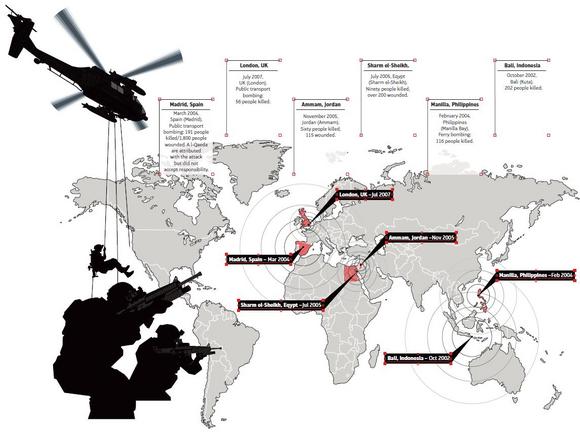Countries worldwide are on high alert following the death of the USA’s most wanted terrorist
The death of Osma bin Laden who was killed by Navy Seals in a daring raid in Pakistan on 2 May 2011, could increase the likelihood of further international terrorist attacks. India, the Philippines, the UK and the USA are all on high alert and a global travel advisory has been put in place.
The death of Bin Laden is a symbolic victory for the USA, but al-Qaeda’s cell structure means it is a highly decentralised organisation. As such, experts believe it won’t stop planning attacks even a er the death of its figurehead.

Al-Qaeda confi rmed the death of Bin Laden in a statement posted on various Jihadist websites, warning that his death would be avenged and the group would continue in their war against the USA and its allies.
In the statement, al-Qaeda also claimed that it would soon broadcast a recording of Bin Laden that was made one week before his death. This recording reportedly shows Bin Laden “sharing with the Islamic nation the joy caused by the Arab revolts” and giving advice to his followers.
The US government said that a search of Bin Laden’s compound revealed evidence of the early stages of a planned attack on the US rail network. In the short term, analysts say, the risk of terror attacks has probably increased but the situation could change in the long term.
For example, the recent political revolutions in North Africa could potentially off er a legitimate social and political alternative to terrorism, which could damage al-Qaeda’s credibility and its ability to recruit new members.
Downloads
Terror infographic
PDF, Size 1.1 mb



















